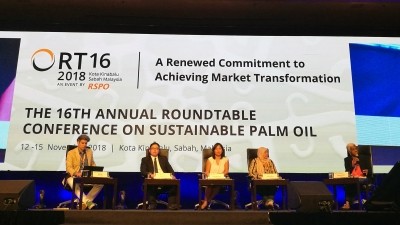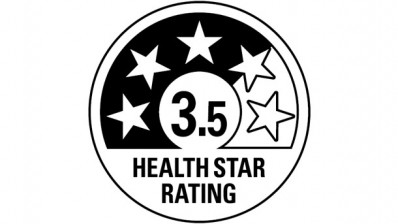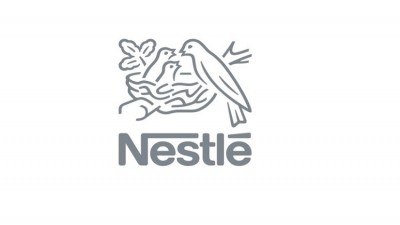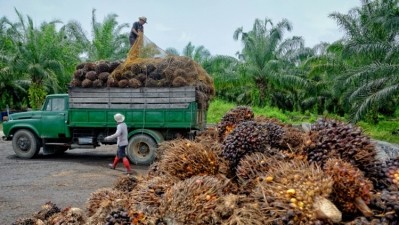‘Fabricated hysteria’: Food firms making dubious ‘no palm oil’ claims under fire as GAR highlights sustainability gains
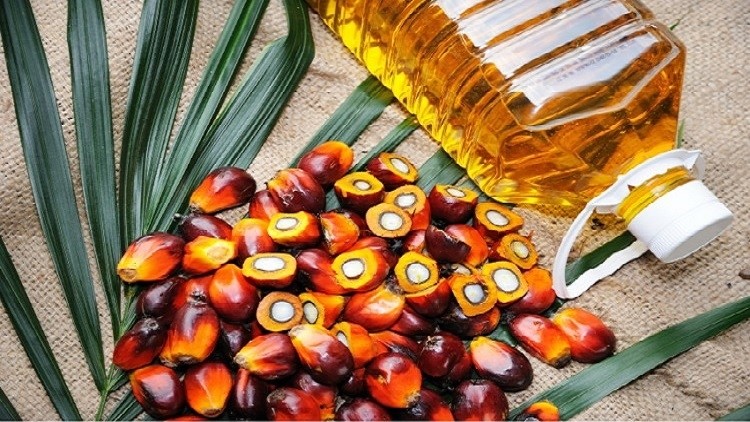
Palm trees were responsible for 270k hectares of annual tropical forest loss, while cattle-rearing and soy farming was responsible for 2.7 million hectares and 480k hectares of forest loss, according to Supply Change Report 2017.
“There is increasing evidence that the efforts being made by the palm oil companies, particularly in Indonesia, is slowing rates of deforestation,” Anita Neville, Vice President of Corporate Communications and Sustainability Relations from Golden Agri-Resources (GAR) commented on palm oil sustainability efforts in an interview with FoodNavigator-Asia.
The Indonesian firm itself is on its way to achieve 100% traceability to plantation for 427 independent mills by 2020. To do so, it will use supply chain mapping methods and technology.
Earlier in February this year, it had finished mapping all its suppliers to its own mills last year, which was equivalent to more than 600k hectares of estates and accounted for 39% of its total supply of palm oil.
Through mapping, firms can trace the source of their palm oil supply and find out if their palm oil are produced in a sustainable way.
As of March 31, 2018, GAR’s planted area stood at 500,345 hectares, of which 259,473 hectares were certified by the Roundtable on Sustainable Palm Oil (RSPO).
Shifting burden and false labelling
Replacing palm oil with other ingredients such as soy or butter would not solve the problem of deforestation, and would in fact worsen the situation, Neville said, referring to statistics from environment watchdogs such as Supply Change.
She explained that that was because other agricultural products have a lower yield, and as such, would require a larger farming area, in turn leading to more deforestation.
For palm oil, its yield was around five times as much as soy, grapeseed or sunflower.
In addition, if one replaces palm oil with butter, more soy would be needed to feed the cows, which translates to more deforestation.
“You would need much more land to produce the same amount of oil (for other agricultural products),” she concluded.
“If you claim that you are not using palm oil because you are concerned about deforestation, and you are replacing it with animal fat or with soy, you basically just displace the issue of deforestation from Indonesia to probably Brazil (where large amount of land is used for soy farming).
“In which case, you don’t care about deforestation and you don’t want to be part of that solution, you basically want to cash in on hysteria around palm oil.
“By and large, the substitutes have at least just as bad or if not, worst environmental consequences so I think consumers have to be really careful about what they ask for.”
On the other hand, she pointed out that if manufacturers claim that a particular product was palm-oil free when palm oil was never used in the first place, they ran a risk of making false and misleading advertising claims.
“The first thing I ask when I see a no palm oil advertisement, I will ask do these products even contain palm oil in the first place? In which case, you are just kind of cashing in on a fabricated hysteria which seems to me ripe for challenge via advertising and labelling rules jurisdiction.”
Consumer perceptions
Consumers, especially those from Europe and the US hold similarly negative views towards the use of palm oil.
Neville believed that geographical location was a factor in affecting consumer perceptions of palm oil.
“Consumer perceptions are different depending on where you are.
“Palm oil is a cooking oil that is found commonly at home in Indonesia. It is not like that (in other countries). I grew up with canola because that’s what Australian grew and olive oil... So you have a different relationship with the product as well.”
“For western consumers it is largely invisible which is made to equal insidious or evil in some ways because you can’t see it. In South East Asia, it is common, because that’s what we cook with, so it’s a different cultural approach that you need to take when talking to consumers about palm oil.”
She added that about 40% of palm oil production was managed by autonomous farmers, instead of big corporate players. The industry provides employment for an estimated 16 million people in Indonesia, and is the country’s largest export earner.
“There is really false perception of the palm oil sector that it is a massive industrialised thing and the reality is it is made up of hundreds of thousands of individual farmers.
“About 40% of the production is managed by independent smallholders and not big players like us, and it’s a very human, labour intensive, so it is not a sort of industrial machine.”
Independent farmers
As independent smallholders also provide palm oil to big corporations, it thus important for corporations to engage these farmers when promoting sustainable practices.
However, cost, knowledge and capacity are obstacles that prevent independent smallholders from changing their farming methods, Neville said.
For instance, most of these farmers are using farming methods that are less effective and passed down from generations, it would not be an easy task to persuade them to change their farming methods.
“The best thing for them to do is actually to cut down all their trees and start again and we run programmes to help them do that by providing them with finance.
“The main barrier in making that shift is cost and the fear that if they cut everything down, even if they are barely making anything from that land right now, the idea of not having any income from most plants for four years, which is about the amount of time for palm trees to become productive, that is a real fear factor.”
As such, many independent farmers would rather stick to their own farming methods.
In addition, independent farmers lack knowledge of precision farming, which affects the yield and production costs.
“Farming is often a rural endeavour...Generally speaking, what we find is that independent smallholders have the idea that ‘more is more’, so more fertilisers, more pesticides…That generally is not helpful, it affects quality, it affects the plant, cost and productivity,” she said.
“There’s a lot of cultural and intellectual legacy that you are asking them to move against…It is such a human behavioural problem that we are trying to address.”
“So you need to build rapport with them, explain and demonstrate. A lot of times, if you find that one farmer who is willing to take that risk and that leap of faith, then that peer group pressure can really work in our favour.”
Financial performance
As compared to the same period last year, the revenue from plantations and palm oil mills in Q1 2018 have dropped 27.9%, from US$ 475,247 to US$ 342.822, according to GAR’s latest financial statement.
The firm explained that the fall was due to lower production yield and crude palm oil prices in its financial statement.
On the other hand, fresh fruit bunch and total palm product output in 1Q 2018 were also lower at 2,125,000 tonnes and 612,000 tonnes respectively as compared to 2,449,000 tonnes and 696,000 tonnes respectively in 1Q2017.
Tree-stress effect after the high production in 2017 following the recovery from El Nino weather condition was the main reason for lower production, the firm added.
